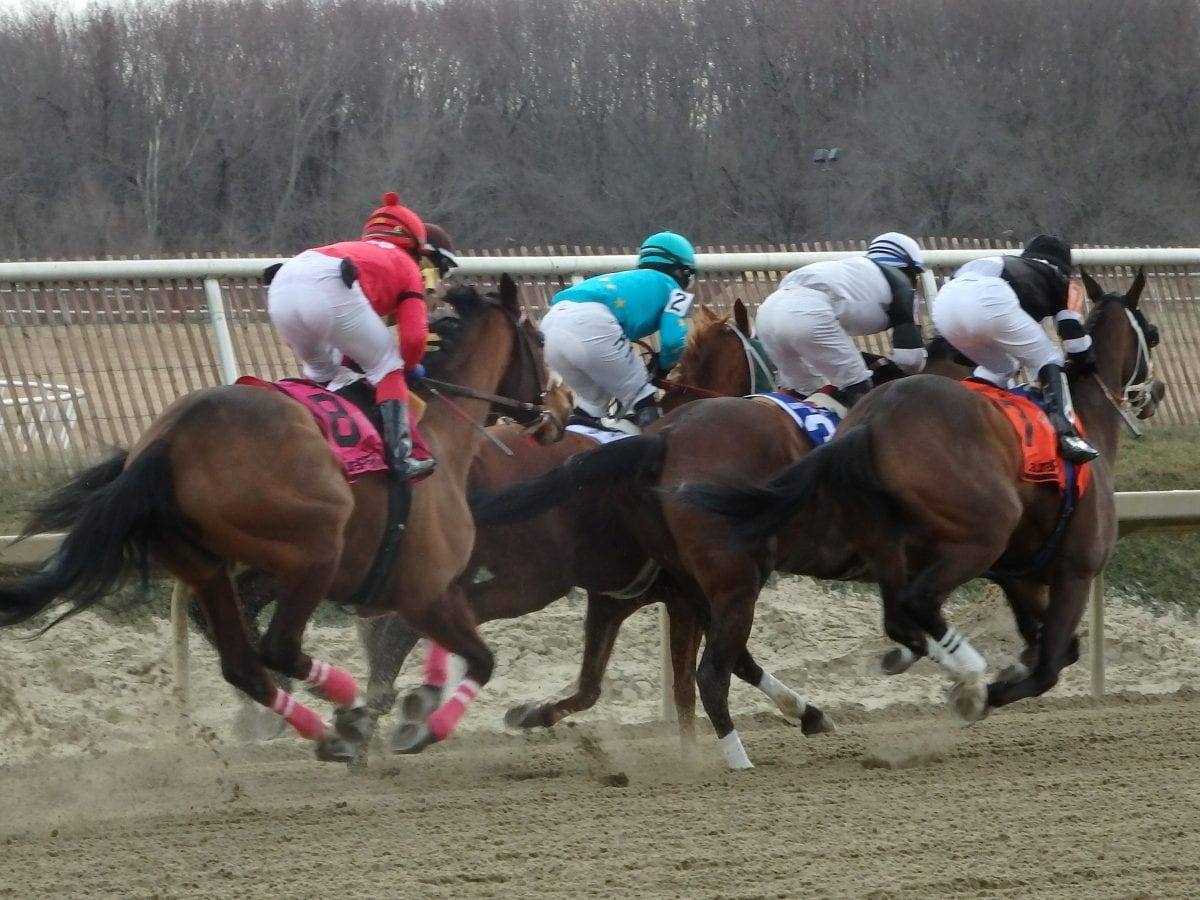Consensus-seeking Jockeys’ Guild not for – but not against – federal bill

by Frank Vespe
In a statement released Wednesday morning, the Jockeys’ Guild announced that it doesn’t quite support – but also doesn’t quite oppose – the national Horse Racing Integrity Act of 2017 (HRIA).
The HRIA, introduced in May by Rep. Andy Barr (R-KY) and Rep. Paul Tonko (D-NY), would nationalize horse racing medication rules under a newly created “Horseracing Anti-Doping and Medication Control Authority.” It would also prohibit the use of the anti-bleeder medication Lasix.
The bill has 79 cosponsors. It also has the support of the Jockey Club, the Coalition for Horse Racing Integrity, the Water Hay Oats Alliance, and others.
They argue that the sport – which is governed by about three dozen state Racing Commissions – needs increased uniformity to protect its athletes, create a level playing field for competitors, and to create a positive environment in which to grow. What’s more, they say that raceday medications, including Lasix, are tantamount to “drugging” horses and must be prohibited to demonstrate to the betting public that the sport is serious about integrity and equine welfare.
On the other side are horsemen’s groups, the Association of Racing Commissioners International (ARCI), representing the state racing commissions, and major veterinarians’ groups. They see the proposed legislation as an unnecessary federal takeover of a quintessentially state function that would take medication rules out of the hands of those closest to, and best equipped to govern, the sport and put it in the hands of bureaucrats unaccountable to anyone in racing. They further claim that the use of Lasix is beneficial to horses’ health and well-being and, since it’s fully disclosed to the bettor, not an integrity issue at all.
And in the middle? That’s where you’ll find the Jockeys’ Guild.
The organization, the statement said, “supports the view that there needs to be a change to better protect the integrity of our industry and promote the level playing field that all members of the racing community desire and deserve.”
Yet while the HRIA “has many needed elements” to increase uniformity – and although the Guild is “in general supportive of a legislative solution” – the organization nevertheless lists several items it says need “to be addressed before the proposed legislation could be supported.”
While these issues fall under several headings, perhaps they fall most broadly under a plea for consensus. The industry, the Guild suggest, should obtain a “consensus” on Lasix. It should reach a consensus on governance of the new entity created under the HRIA. Federal legislation should “enhance” the role played by state Commissions and the ARCI, the Guild says, and provide for the Racing Medication and Testing Consortium – which has created and promotes the national uniform medication program — to continue to enjoy “the same significant status” it holds today.
Then there’s the matter of Lasix. The Guild opposes the medication’s elimination “because we believe it is necessary for the safety of both the horse and the rider.”
The problem for the Guild: it’s managed to take a position between two adversaries who see their positions as basically irreconcilable.
In years past, horsemen’s groups, including the National Horsemen’s Benevolent and Protective Association and Thoroughbred Horsemen’s Associations, feared federal legislation in part because they considered it the camel’s nose under the tent towards the elimination of Lasix.
The HRIA makes that explicit.
Absent scientific research that makes clear that Lasix is – or is not – beneficial to horses, it’s hard to see the two sides reaching consensus there.
Likewise on the matter of the creation of a national anti-doping authority. The search for common ground among those favoring such an approach and those opposed to it seems likely to be a fruitless one.
Put a different way: The Coalition for Horse Racing Integrity claims it represents “a consensus among the diverse members of the horse racing community.”
But the National HBPA sees the HRIA as “an ill-conceived effort by special interests to impose their minority views on regulating the industry.”
Hard to see consensus forming there.
Given the gridlock in Congress these days, it’s hard to see the HRIA going anywhere. Not, at least, until there’s some – that pesky word again – consensus in the industry on it.







